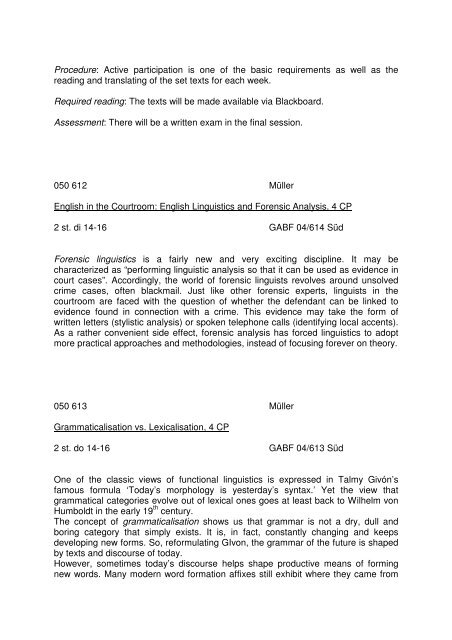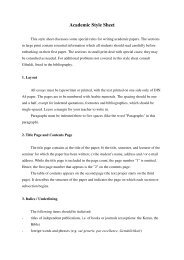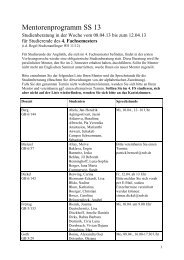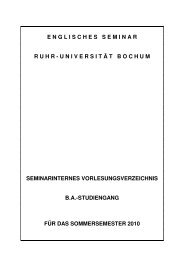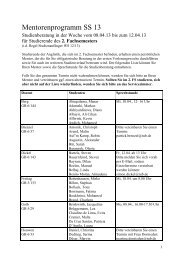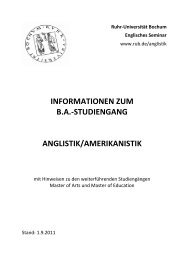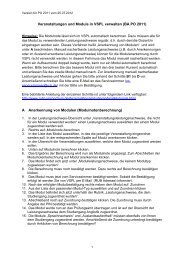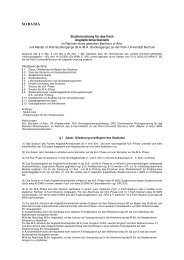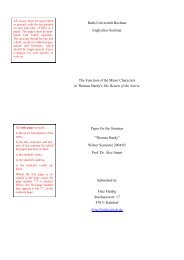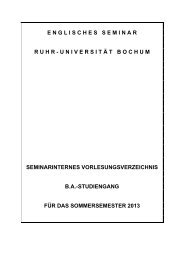gb - Englisches Seminar - Ruhr-Universität Bochum
gb - Englisches Seminar - Ruhr-Universität Bochum
gb - Englisches Seminar - Ruhr-Universität Bochum
You also want an ePaper? Increase the reach of your titles
YUMPU automatically turns print PDFs into web optimized ePapers that Google loves.
Procedure: Active participation is one of the basic requirements as well as the<br />
reading and translating of the set texts for each week.<br />
Required reading: The texts will be made available via Blackboard.<br />
Assessment: There will be a written exam in the final session.<br />
050 612 Müller<br />
English in the Courtroom: English Linguistics and Forensic Analysis, 4 CP<br />
2 st. di 14-16 GABF 04/614 Süd<br />
Forensic linguistics is a fairly new and very exciting discipline. It may be<br />
characterized as “performing linguistic analysis so that it can be used as evidence in<br />
court cases”. Accordingly, the world of forensic linguists revolves around unsolved<br />
crime cases, often blackmail. Just like other forensic experts, linguists in the<br />
courtroom are faced with the question of whether the defendant can be linked to<br />
evidence found in connection with a crime. This evidence may take the form of<br />
written letters (stylistic analysis) or spoken telephone calls (identifying local accents).<br />
As a rather convenient side effect, forensic analysis has forced linguistics to adopt<br />
more practical approaches and methodologies, instead of focusing forever on theory.<br />
050 613 Müller<br />
Grammaticalisation vs. Lexicalisation, 4 CP<br />
2 st. do 14-16 GABF 04/613 Süd<br />
One of the classic views of functional linguistics is expressed in Talmy Givón’s<br />
famous formula ‘Today’s morphology is yesterday’s syntax.’ Yet the view that<br />
grammatical categories evolve out of lexical ones goes at least back to Wilhelm von<br />
Humboldt in the early 19 th century.<br />
The concept of grammaticalisation shows us that grammar is not a dry, dull and<br />
boring category that simply exists. It is, in fact, constantly changing and keeps<br />
developing new forms. So, reformulating GIvon, the grammar of the future is shaped<br />
by texts and discourse of today.<br />
However, sometimes today’s discourse helps shape productive means of forming<br />
new words. Many modern word formation affixes still exhibit where they came from


